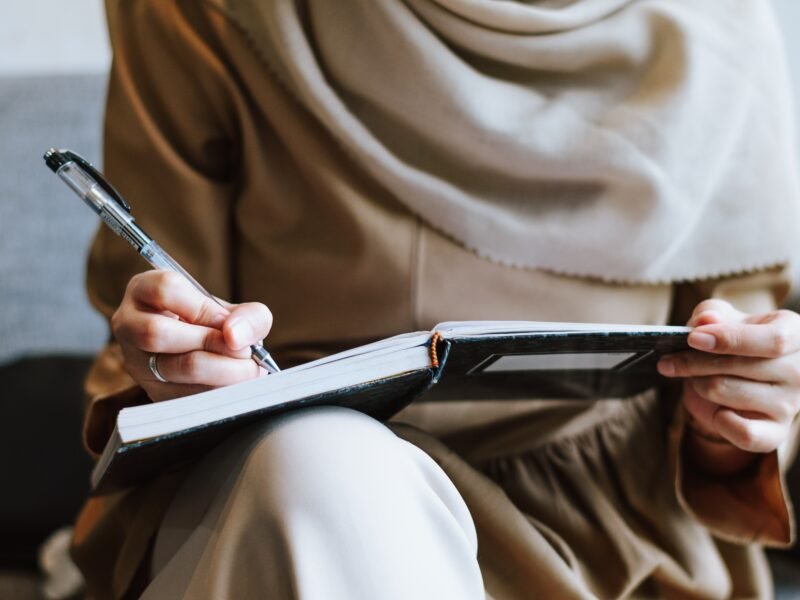What if you don’t wake up well on the day of the test? How to deal with fatigue and slow thinking? Giving up is not (or should not be) an option. So the only way is to be prepared.
These tips are especially important for those who are studying alone , at the beginning of their competitive exam journey.
You may already know that I am a big fan of not leaving any factor involving our studies and our competitions to luck. That’s why I always propose suggestions to improve each aspect of our preparation and in this case it’s no different.
How can I study when I’m sleepy if I’ve already woken up without any energy?
This is really a challenge and can waste an entire day of studying. But we need to separate some things. Firstly, if we are talking about that sleep for no apparent reason or is it just fatigue.
There are days when our study session only takes a lot of effort. This is perfectly normal. But this sleep has an origin. We have the sleep that comes from simply waking up – this is easily overcome – and the other comes from tiredness.
When we wake up we need a few minutes for our brain to get into a normal rhythm. This varies from person to person (but can be trained) and also involves our level of tiredness on that particular day.
As you regulate your body to wake up, preferably always at the same time, you will need less and less time to start your day, with at least 7 hours of sleep per night being always recommended.
This is how you avoid waking up sleepy in the future, but if you’ve already woken up or couldn’t help it, I propose that we use this to our advantage, especially those who are starting from scratch .
Taming sleep and using it to your advantage
It’s Sunday, the day of your test has arrived and you don’t know your name. Your thinking is so slow that you can barely put one foot in front of the other. This is the time when our strategy comes into action.
I don’t know if you know, but MMA fighters and boxers “train” for almost being knocked out and, thus, manage to remain calm if this happens during the fight. Look how crazy!
And it couldn’t be simpler. To simulate the feeling of having been hit hard, fighters spin around in place until they become dizzy. Then they try to do things normally, punching and kicking or moving around.
By doing this they get used to the sensation, so they don’t despair and know how to behave when/if the blow comes. Your advantage (after reading these lines) will be that you have already dealt with this, that is, you will be a fighter ready for combat!
In your case, resolve issues. See how your thinking is challenged when solving exam questions while tired. Get used to not going into despair while your body hasn’t yet realized it’s time to wake up.
See and understand your response time until you feel normal and use this tool more to your advantage. This practice will make you aware of your momentary limitations and that they will pass.
In the meantime, keep applying everything we’re going to talk about here. This information will help accelerate awakening and put you on the path to enjoying your peak performance.
So every time you wake up feeling sleepy, I suggest you put the following steps into practice. If you want to know how to study while sleepy, just keep following.
Tackle the easiest first
There are those who prefer to start with the most difficult things and get rid of what takes the most effort first. This can be a good strategy when you are 100%, but when you are reeling it won’t be an option.
Our brain finds it even more difficult than normal to perform tasks with a high cognitive load, which use a lot of processing power. That’s why we can’t do anything complex (or at least we have a lot of difficulty).
Do whatever is easiest first. Study the easiest material that day first, solve the easiest questions first, and so on.
The feeling of accomplishment that will come from having done something, even with so much tiredness, will be a great motivator to take you to the next step and the next one after that.
If you can’t read, try to solve questions (if you’re already at that point in the material), if you can’t do either of those things, organize all your study material for that day.
If that doesn’t happen either, try doing some light household chores like washing dishes. This can help too, because it will free up the time you would otherwise use to do these things.
This is actually an excellent tip for optimizing your time . We have to use it wisely, directing it correctly and advancing what is possible always helps.
Of course, if you follow all our advice it won’t be a possibility, but this also applies to the day of the test. If you wake up feeling very tired, do whatever is easiest first, including the questions.
Drink water
Fatigue and tiredness are often signs of dehydration, you know? And that same dehydration not only saps your energy, but also alters cognitive functions, making everything that requires reasoning more difficult.
When you’re struggling with fatigue, even coffee lovers (like me) should consider drinking water first thing in the day, preferably as soon as you wake up.
It is also important to review your water intake during the previous week. Even though it is not the biggest factor, it is quite possible that it contributed to making the situation worse.
Important scientific studies have examined dehydration, including its effects on brain function. The authors found that even mild levels can affect short-term memory, concentration, perception and alertness.
Although the amount of water needed varies from person to person, the estimate is that the ideal is for everyone to drink 2 liters of water every day, especially on hot days or if you practice physical activities.
How to study when sleepy: Sit in another room
If you can, avoid staying where your bed is. Of course there are people who won’t be able to do this, but if you’re not directly in bed it helps a lot.
The ideal is to avoid studying (drowsy or not) in the same place where you sleep, as this can reinforce the feeling of drowsiness, especially if you wake up with the bed on your back.
Also, sit down. It can be very tempting to study in a completely comfortable place, but it won’t help you wake up and stay awake. Technically speaking, lying down is something your central nervous system associates with functions like digestion and rest.
Don’t stand still from start to finish
In addition to being terrible for your spine, the act of moving is an important factor in recovering energy, as well as helping you stay alert and awake. Even getting out of your chair from time to time, perhaps stretching, can help you remember things more.
In your study session, a break every 50 minutes will do wonders for both your performance and your own health. We’ve already talked about this and other tips for those just starting out .
When we are very sleepy, walking a little can help our body understand that we need it to be fully active, chasing away sleep and making us more active.
How to study when sleepy: Conclusions
Waking up with a lot of sleep, the devastating kind, is not always easily avoided. We have a thousand tips to give you about this, but if it happens you already know how to behave.
As we suggested, test how you feel when solving questions while the fatigue persists. This will give you the confidence that even if you wake up feeling bad on the day of the test, you will be able to deal with it.






